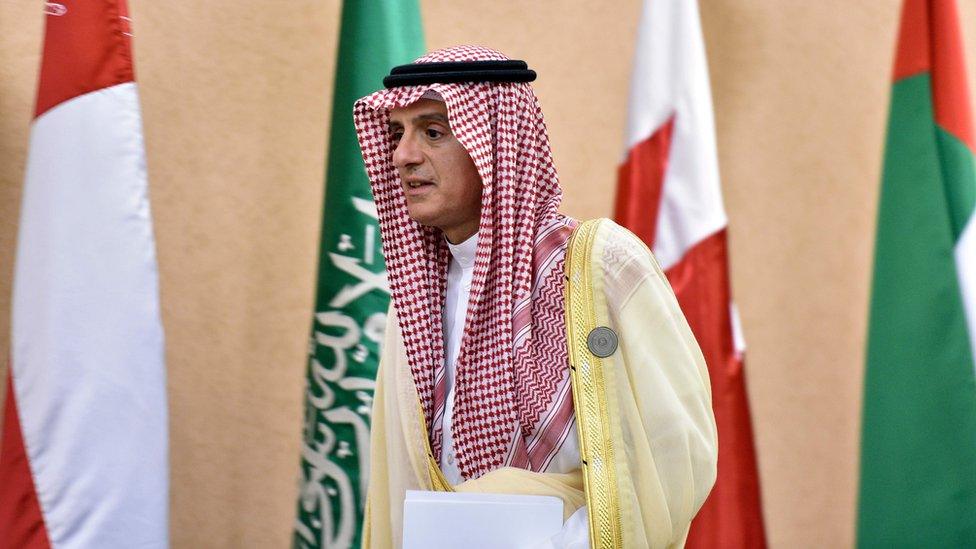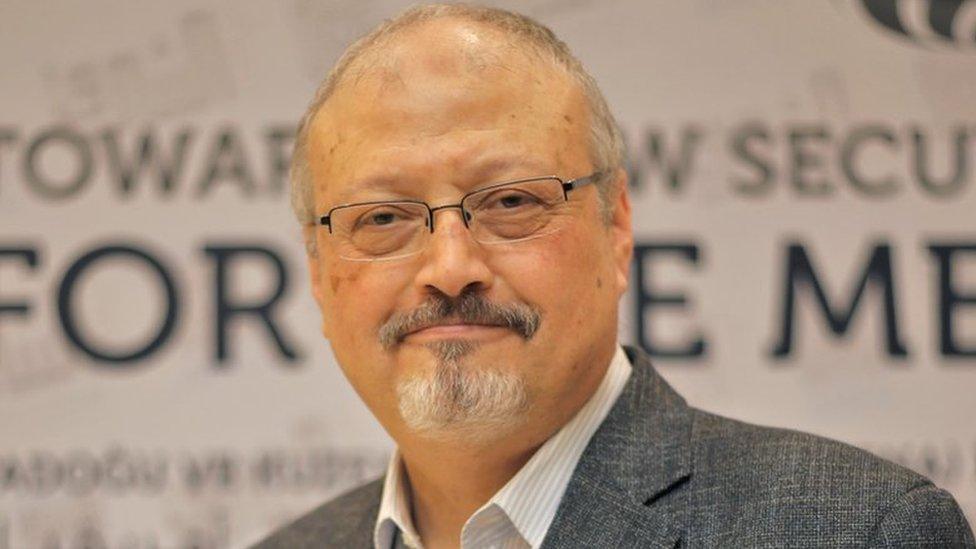Khashoggi murder: Saudis refuse Turkey extradition request
- Published

Mr al-Jubeir criticised the way Turkey has shared information with Saudi Arabia
Saudi Arabia's foreign minister has ruled out extraditing to Turkey suspects in the murder of journalist Jamal Khashoggi.
Adel al-Jubeir said: "We do not extradite our citizens."
Just over a week ago, Turkish President Recep Tayyip Erdogan demanded the extradition and on Wednesday a Turkish court issued arrest warrants.
Saudi Arabia has charged 11 people with the murder, which took place in the Saudi consulate in Istanbul in October.
Arrest warrants were issued in Turkey for former Saudi intelligence chief Ahmad al-Assiri and former royal adviser Saud al-Qahtani.
Mr al-Jubeir criticised the way Turkey has shared information with the kingdom.
"The Turkish authorities have not been as forthcoming as we believe they should have been," he said, quoted by AFP news agency.
"We have asked our friends in Turkey to provide us with evidence that we can use in a court of law. We have not received it in the manner that it should have been received."
Mr Erdogan says the order to kill Khashoggi came from the highest levels of the Saudi government but insists he does not want to damage the Saudi royal family.
What does Saudi Arabia say?
It denies that Crown Prince Mohammed bin Salman was involved in the killing.
The Gulf kingdom's public prosecutor has said Khashoggi was killed inside the consulate as a result of a "rogue operation" on the orders of an intelligence officer.
Khashoggi was given a lethal injection after a struggle. His body was then dismembered inside the consulate in Istanbul and the body parts were handed over to a local "collaborator" outside the grounds, the prosecutor said.
Who was Jamal Khashoggi?
As a prominent journalist, he covered major stories including the Soviet invasion of Afghanistan and the rise of Osama Bin Laden for various Saudi news organisations.

Jamal Khashoggi had gone to Istanbul to obtain a marriage document
For decades he was close to the Saudi royal family and also served as an adviser to the government.
But he fell out of favour and went into self-imposed exile in the US last year. From there, he wrote a monthly column in the Washington Post in which he criticised the policies of Crown Prince Mohammed bin Salman.
In his first column for the newspaper, Khashoggi said he feared being arrested in an apparent crackdown on dissent overseen by the prince since.
In his last column, he criticised Saudi involvement in the Yemen conflict, external.
The BBC's Frank Gardner looks at what could happen to the man known as MBS